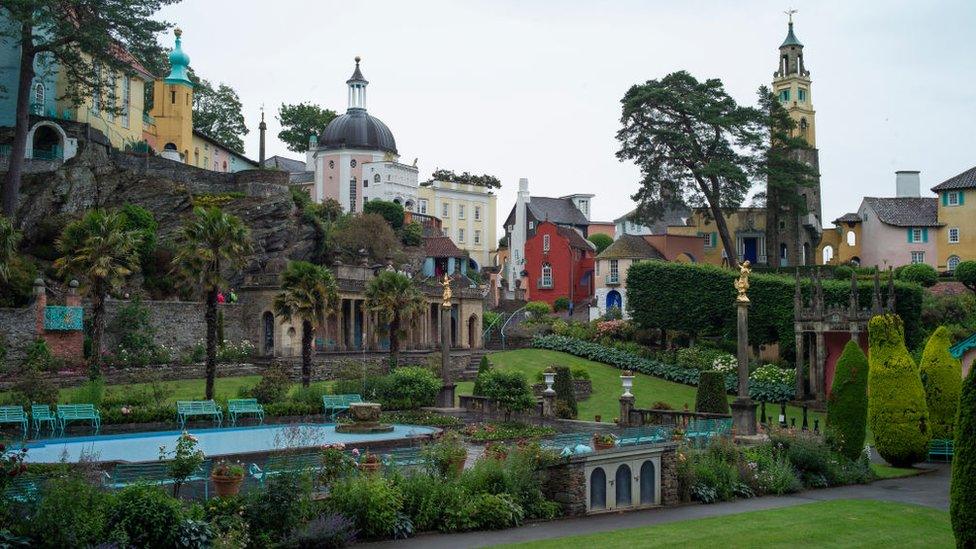Going underground for the world's deepest sleep
Below ground at the 'world's deepest hotel'
At a glance
Deep Sleep claims to be the deepest overnight accommodation in the world
Found at the foot of a 1,375ft (419m) slate mine in north Wales
The mine dates back to the 19th Century
The log cabins can only be reached by a two-hour hike through the mine
- Published
Fancy taking the deepest sleep in the world? That is the offer being made at a disused Victorian slate mine in north Wales.
Guests are invited to stay 1,375ft (419m) underground in one of four log cabins - or a special slate-roofed chamber.
But while there is a hint of luxury inside the rooms, getting there is not for the faint hearted.
Expect a two-hour hike and scramble, including zip lines and flooded slate chambers to navigate.
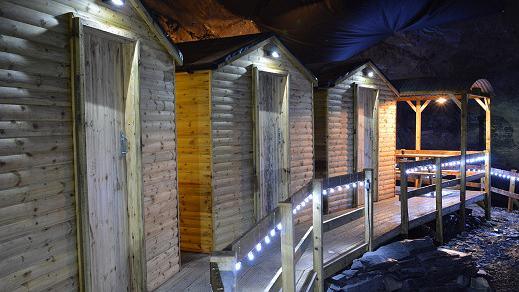
The cabins in an old Victorian mine are claimed to be the deepest overnight accommodation in the world
"I'll never forget the day when the owner asked me if I could build cabins underground," said Peredur Hughes, a former quarryman and shipwright.
"But he said he wanted it in the deepest, lowest chamber. That's when my jaw dropped."
With designs drawn up on scrap paper, and assembled at his home, the entire project was then flat-packed and every individual piece carried by hand down the mine.
"I am quite proud of it," he added.
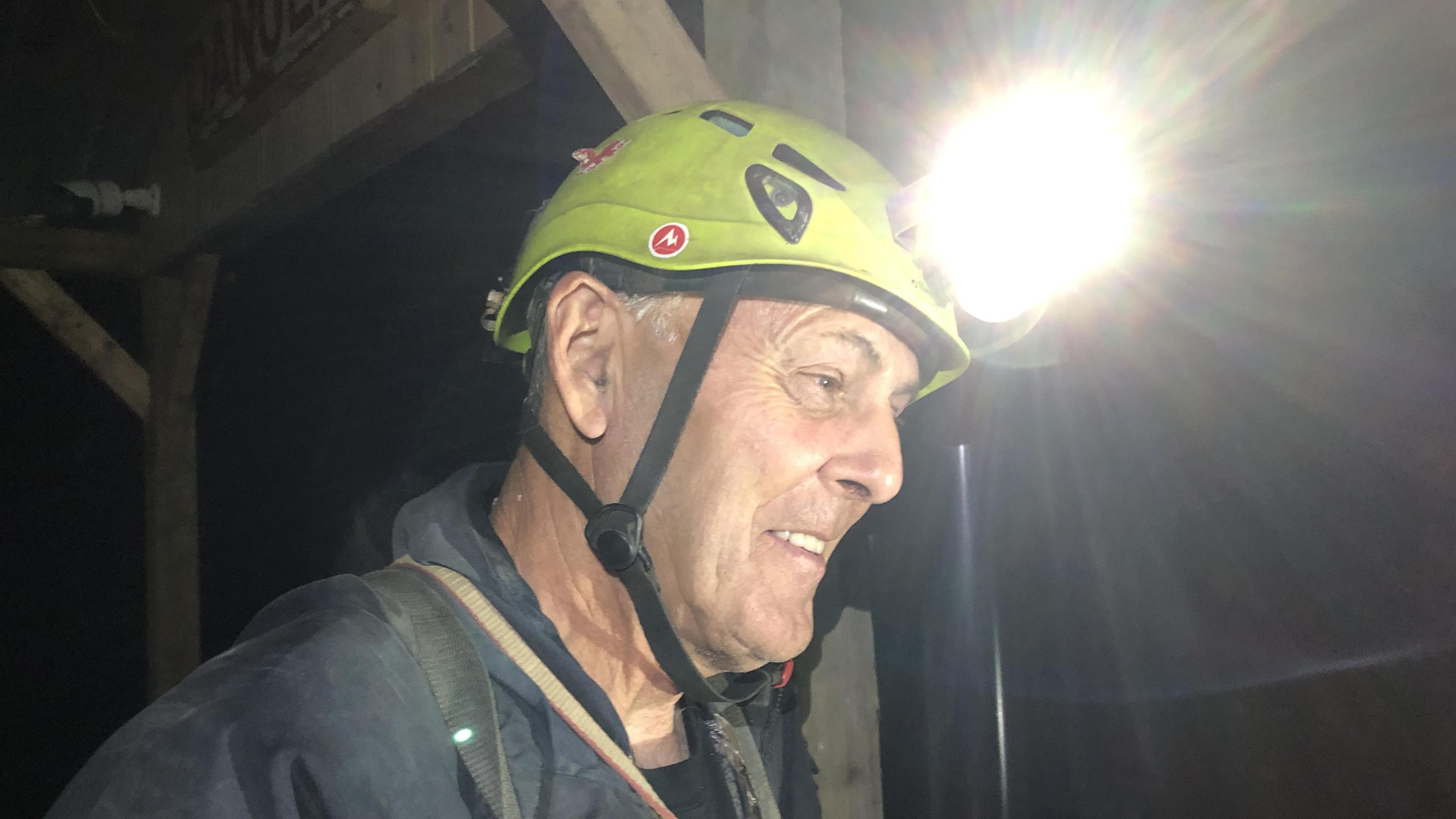
Now retired, former shipwright Peredur Hughes was responsible for designing and building Deep Sleep
The Cwmorthin quarry and mine used to employ hundreds of men in its heyday, high on a hillside at Tanygrisiau, near Blaenau Ffestiniog in Gwynedd.
But like so much of the slate industry in north Wales, it was closed down in the mid-20th Century and left to rot.
However, it has found a new lease of life in recent years, as an extreme adventure playground, run by Go Below Underground Adventures.
It boasts the world's first deepest zip line and free-fall - and now lays claim to the deepest overnight stay.
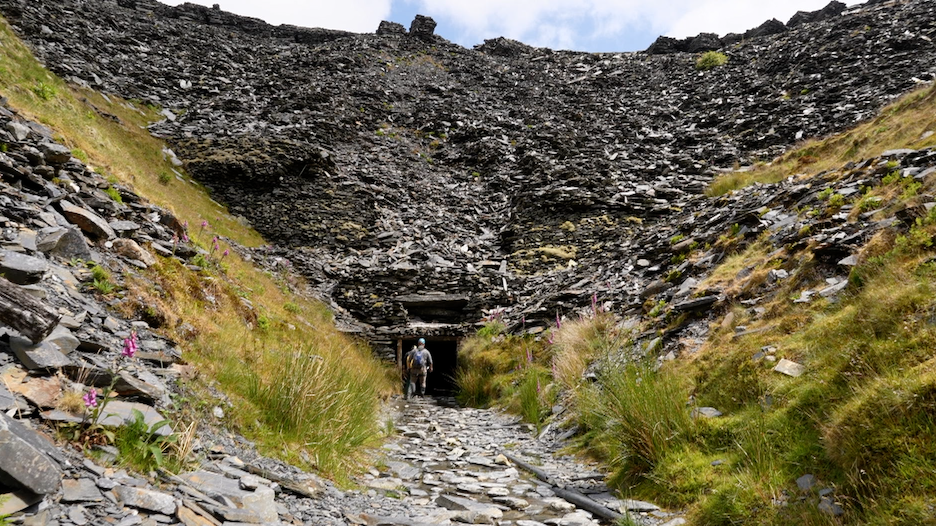
The entrance to the mine lies hidden in deep quarry workings, protected by heay steel gates
"There's two main reasons why it started," explained Go Below underground guide and operations manager, Mike Morris.
"Firstly it was due to popular demand, really.
"Lots of the customers we took on our adventurous trips kept saying to us: 'Wouldn't it be great to sleep down here'.
"And we thought - yeah - why not.
"Secondly, our owner Miles wants to create firsts - like the world's first underground freefall, the longest and deepest underground zip ride.
"It was another opportunity to for him to show his creative side and create this space."
Wales' slate landscape wins World Heritage status
- Published28 July 2021
Lost slate mines' hidden world revealed by explorer. Video, 00:02:30
- Published7 November 2021
Photographing history: The quarrymen of Wales
- Published28 May 2023
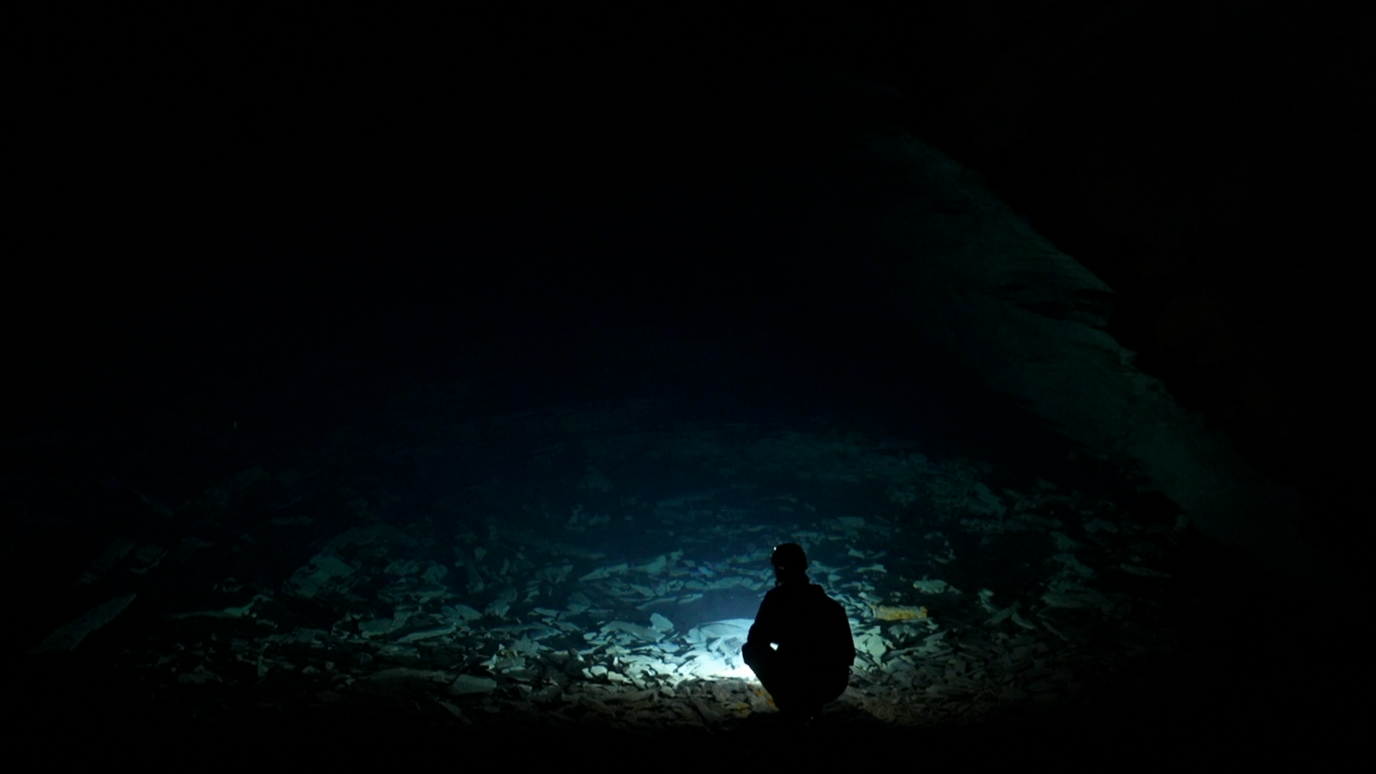
Some parts of the mine are flooded and need to be carefully navigated by those venturing down to Deep Sleep
It builds on the growing reputation for north Wales as an extreme adventure destination.
"A lot of people come to visit, they book a hotel, and book an adventure - I like to think we've combined the two," added Mr Morris.
But it is not without its challenges.
"Behind the scenes there is a lot going on," he said.
"We've got staff members coming down and stripping beds, replenishing food stores - everything you'd expect from a normal hotel really, but this far below the surface makes it slightly challenging."
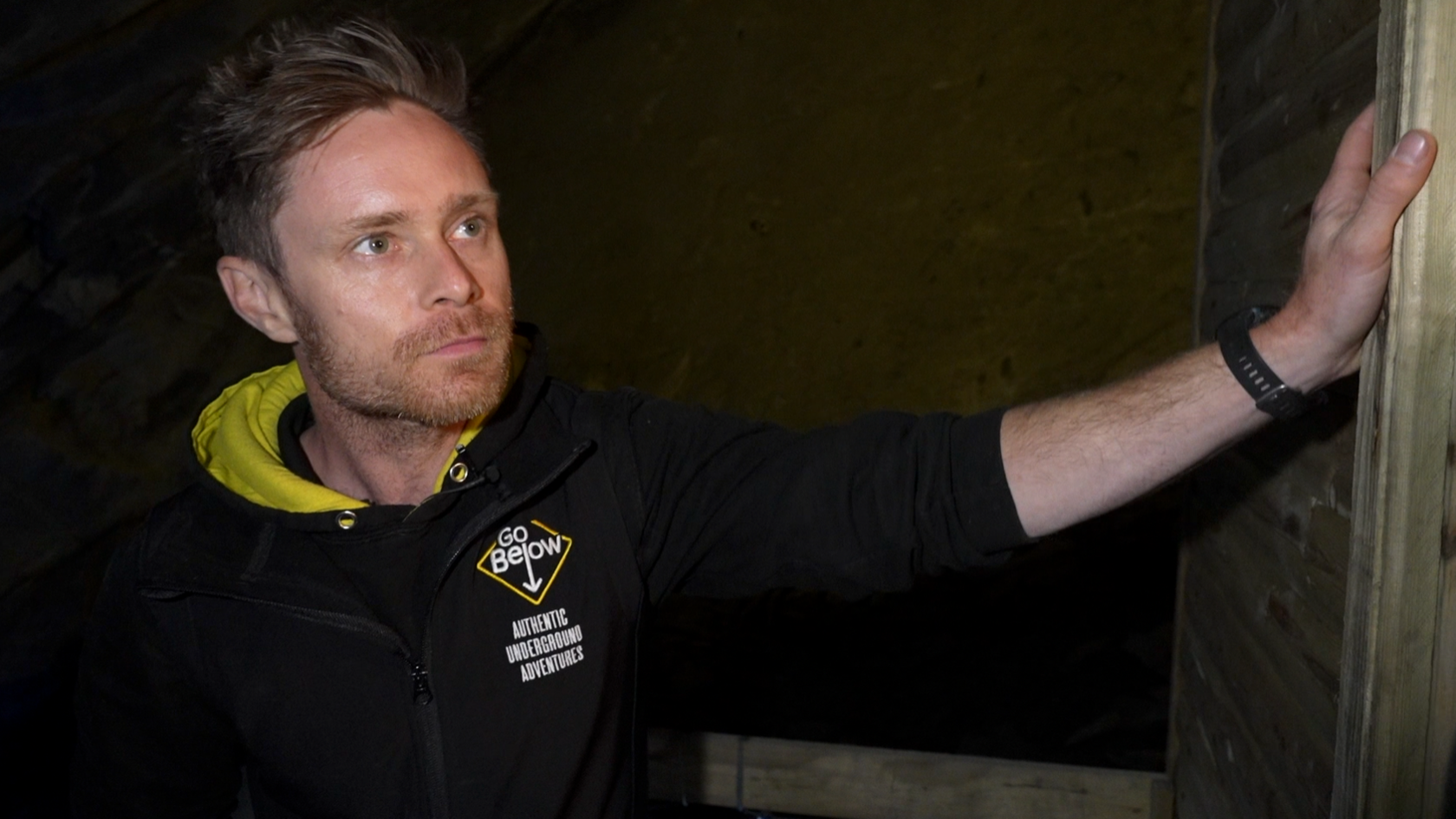
Go Below operations manager Mike Morris says running what is effectively a hotel so far underground poses some unique challenges
Even the fastest route down the mine takes the experienced staff well over an hour, as they navigate miles of tunnels down steep inclines, littered with old equipment and uneven slate waste.
The return journey is even more arduous, with a heart-pumping, lung-bust climb uphill.
But those working in Deep Sleep say the reaction from those staying is worth it.
"You've spent your time navigating this quite technical terrain in this very grey, dark environment and your then confronted with a door - and you open the door and everybody is just taken aback," said Mr Morris.
"They walk in, stand around and just say 'Wow'."
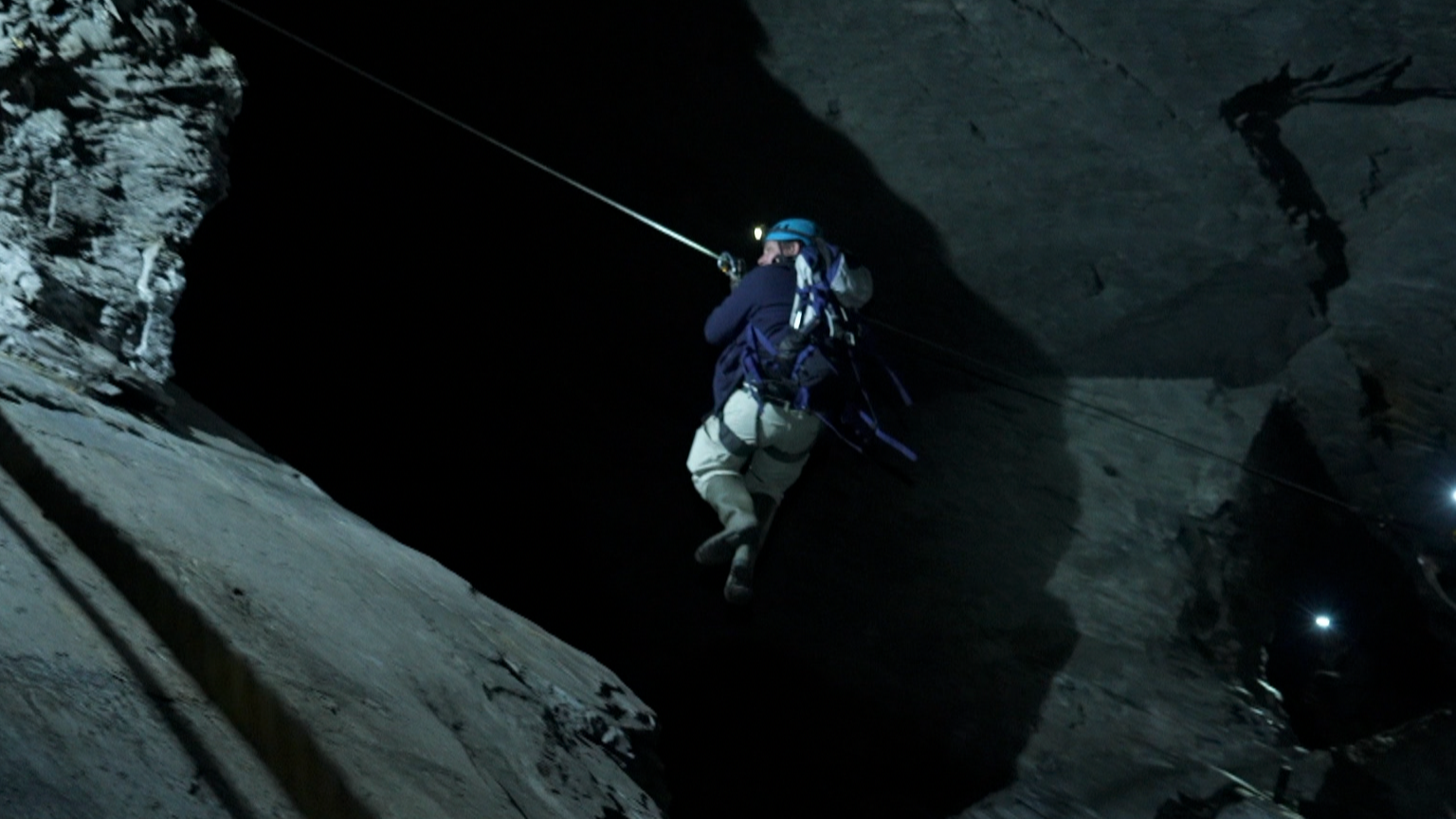
Reaching the accommodation is both exciting and terrifying
Of course, the 'wow' comes at a price. A night in a cabin is about £350 - while staying in the 'luxury' slate chamber in Deep Sleep will set you back over £500.
Food is included, but those expecting a gourmet feast may be disappointed.
The food provided is freeze-dried expedition-style meals. Warm, filling - but not exactly cordon bleu.
For safety reasons, there is also a ban on alcohol.
Not surprising, as the last thing you would want is to negotiate the half-a-kilometre climb out of the mine with a hangover.
Related topics
- Published18 January 2022
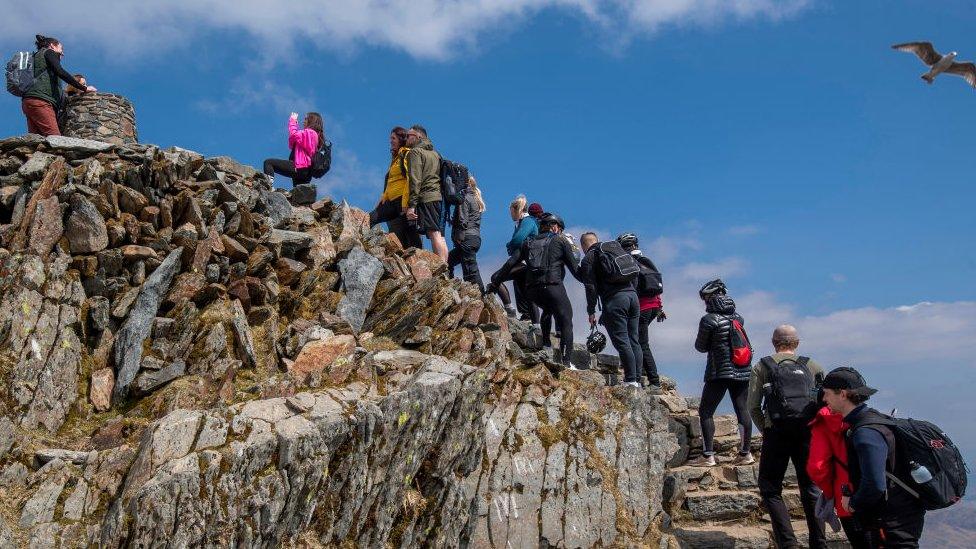
- Published30 March 2023
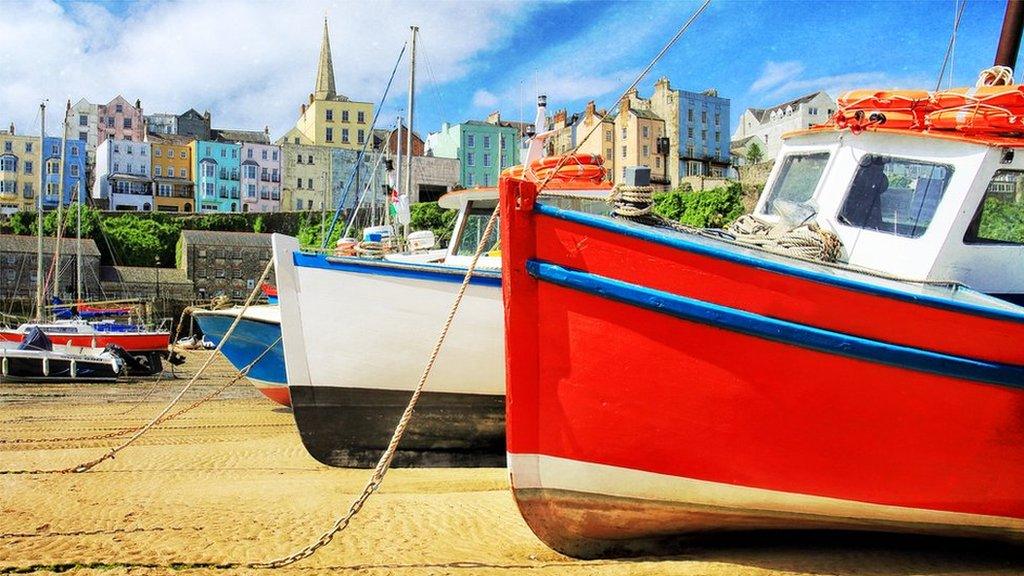
- Published2 June 2023
